Photo: Tanay Shetty
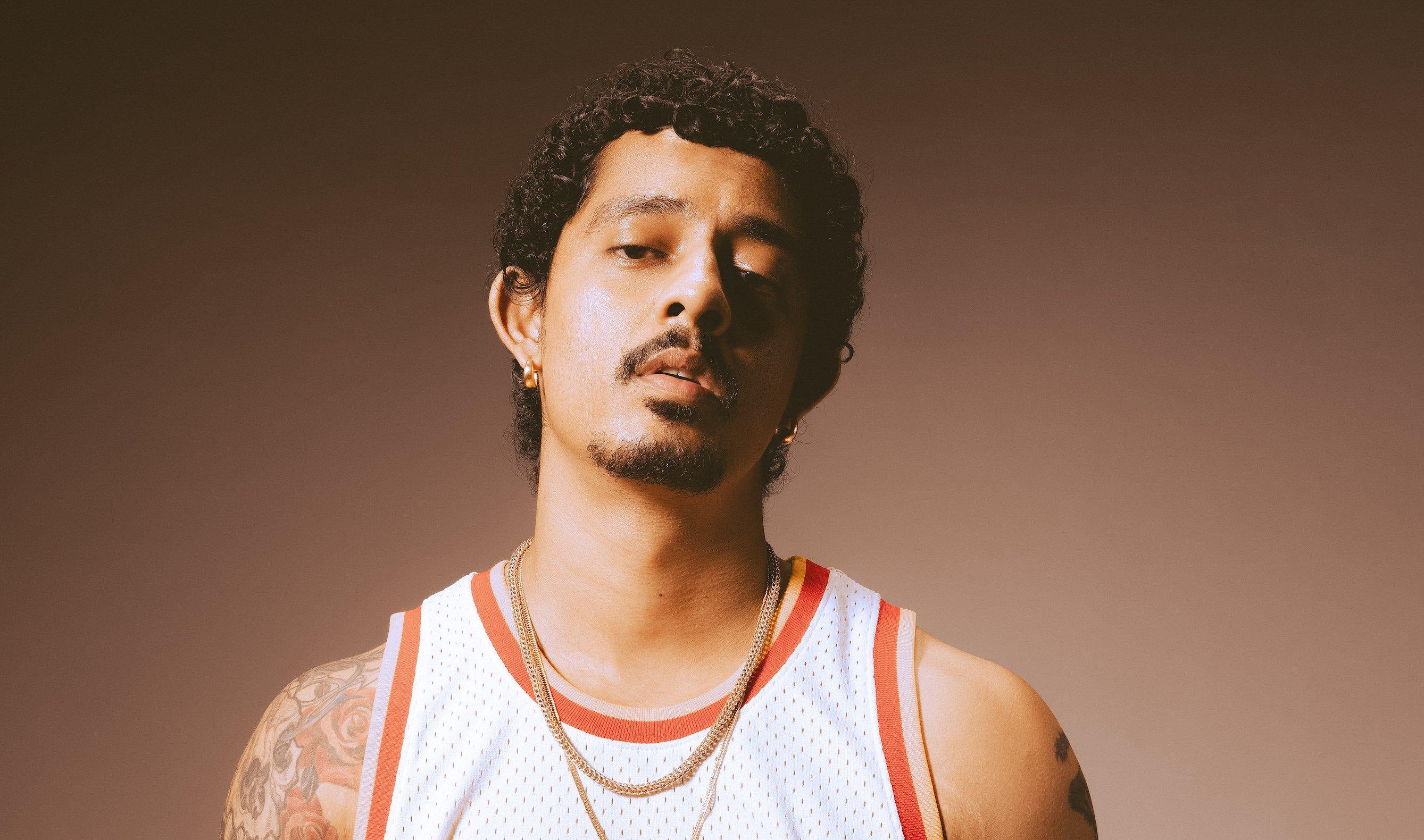
list
6 Indian Hip-Hop Artists To Know: Hanumankind, Pho, Chaar Diwaari & More
As the genre continues to reach listeners around the world thanks to Hanumankind's "Big Dawgs" and Shreyas Savgekar and Kratex's "Taambdi Chaamdi," get to know some of the most compelling rising stars in Indian hip-hop — and how they're making an impact.
As pop and country music ruled the airwaves over the summer, Hanumankind helped bring a much lesser-known genre to global audiences: Indian hip-hop. His rambunctious track "Big Dawgs" almost instantly became a viral hit, taking over Tiktok and soon reaching No. 23 on the Billboard Hot 100 and No. 9 on the Billboard Global 200 chart — a first for an English song by an Indian artist.
Though "Big Dawgs" is in English, its global success has helped give exposure to the world of Indian hip-hop, which has been building a steady foundation in the country. In recent years, Indian hip-hop has become a more grounded and nuanced underground subculture than the more Bollywood-friendly commercialized branch of the genre. Hanumankind is just one of many artists who are bringing pure authenticity, telling their own stories and seamlessly infusing regional Indian languages into their music.
While the genesis of Indian hip-hop dates back to the '90s, the most prominent breakthrough came in 2014 with Naezy's "Aafat!," a diaristic critique of the authentic Indian experience. With subsequent releases like 2015's "Meri Gully Mein," Naezy became the blueprint for a rejuvenated movement that was far more confident in subject matter and less reliant on commercial avenues for publicity.
Like Naezy, the rise of modern Indian hip-hop artists has largely been through democratic means, helping the genre reach audiences more organically and, in turn, feeling more relatable. Part of this authenticity also comes from necessity. With mainstream releases in India often falling prey to censorship spurred by nationalism, the genre has paved the way for meaningful conversations and commentary on social, political and personal upheavals; for example, Street Academics' 2016 track "Chatha Kaakka" used a dead crow as an analogy for the lives of the underprivileged, while Arivu's 2019 release "Anti-Indian" that clapped back at the increasingly insular and dangerous wave of nationalist sentiment across the country. With artists like Hanumankind continuing to exploit their creative freedom and use art as cultural review, Indian hip-hop is on its way to making an equally powerful impact in India and around the world.
As the interest in Indian hip-hop continues to grow, get to know Hanumankind and five more hip-hop artists from the country you should be listening to.
Hanumankind
Before "Big Dawgs" was "rolling through the city" and taking over social media and charts, Sooraj Cherukat — aka Hanumankind — was already deeply entrenched in the Indian hip-hop and rap scene. The rapper, who grew up in Texas but moved back to India to pursue higher studies, left behind a career in investment banking to make music. He released his debut EP, Kalari, in 2019, showcasing his smooth flows and South Asian pride while effortlessly incorporating his Western inspirations — a combination that has become his signature.
Two years later, his track "Damnson" would establish him as a mainstay on the Indian festival circuit. But it was 2024's "Big Dawgs" — heavily inspired by UGK, Project Pat and his "Patta flow," and Pimp C, whose line "Top notch hoes get the most not the lesser" makes an appearance in the opening — that throned him as an underground star poised to become a mainstream icon. With imagery leveraging grassroots Indian motifs like the Maut ka Kuan (translating to "The Well of Death," a popular attraction at Indian street fairs), "Big Dawgs" was both a nod to his roots and his creative influences growing up, making HMK's brand of Indian pride truly global.
Pho
At just 23, Akriti Lal — known as Pho to her fans — is one of the few female artists to have made waves in the hip-hop scene in India, crowning herself as an emphatic, poetic and sensitive storyteller. Just like her live performances, which see her invite the audience to be part of the show, Pho's songs brim with an intimate, electric energy.
Her precocious 2022 debut EP Bheetar Bahar (translating to "inside outside") explored the inner desires to love against the external stimuli that hold us back from doing so. Since then, releases like "Kabhi Kabhi" and "Sambhav" have established her as an emotive writer uncannily in tune with the intricacies of human nature. Working in tandem with her lyricism is an honest, grounded approach; Pho speaks from the heart, lacing her work with endearing sincerity that lends itself to romanticism.
Shreyas
Along with Hanumankind's "Big Dawgs," Shreyas Savgekar and Kratex's "Taambdi Chaamdi" (translating to "Brown Skin") has also helped Indian hip-hop gain attention this year. The self-love anthem went viral in July not just for its good-natured comedic treatment, but also for clever wordplay and references delivered in Shreyas' native Marathi tongue, a cornerstone of his artistry. Savgekar looked to his Maharashtrian upbringing and childhood to inspire the song's catchy hook "Lakalakalaka," taken from the phrase "Lakh lakh karun chamaktoy" ("See how they're shining"), which his grandfather used to describe glimmering fireflies at dusk.
Beyond "Taambdi Chaamdi," releases like "Uddhat" and "Khankhanit" have made Savgekar into a spokesperson for the evolving Marathi rap landscape. In a landscape where Marathi rap songs can be "heavily influenced by the West and we can see Marathi artists struggling to find their authenticity," as he told Rolling Stone India in 2023, Shreyas' work stands as a celebration of Marathi grit and culture, an ode to soil and struggle characterizing the humble, yet proud man.
Chaar Diwaari
"Hip-hop, I find, is the most liberating of all genres because I think anybody can do it. All we need to do to express ourselves is just to write and pick up a beat online and just say what you feel. That is so liberating," Garv Taneja, aka Chaar Diwaari, told Rolling Stone India in 2023.
True to his words, zero budgets and a DIY-approach haven't stopped Taneja from leapfrogging over the proverbial *chaar diwaari* — translating to "four walls" in Hindi, often the term used for a constrictive space — of expectations and creative blocks and creating immersive, phantasmagorical, and often horrific, worlds for his music videos.
From the horror and rap medleys of "Teri Maiyat Ke Gaane" ("Songs For Your Funeral") to his bone-chilling delivery on "Barood" ("Gunpowder"), Chaar Diwaari is an expert on toeing the line between defiant and disturbing. While society continues to debate the dichotomy between what is acceptable and what might be art, Taneja's music exists in the liminal space where they are one and the same.
ThirumaLi
For many, ThirumaLi, or Vishnu MS, is largely considered an OG of the Malayalam rap and hip-hop scene in South India. When he began making hip-hop close to a decade ago, few knew about the genre, and even fewer were making music that was beyond flimsy facsimile of Western rap and hip-hop.
ThirumaLi started out rapping in English, but switched to his native Malayalam before long, soon cutting through the noise with scathing social and political commentary and an authentic voice. His music is characterized by colloquial lyrics and delivery, aligning with the "raw" nature of rap that drew him to the genre in the first place.
Whether in celebration or in critique, ThirumaLi's kitchen-sink and direct approach stands out. On tracks his "Avastha" (translating to "state of things"), he calls out overconsumption and moral policing, while "Sambar" cheekily warns people not to underestimate him by likening his flow to *Sambar* — the South Indian dish that's deceptively simple, but still packs a punch.
Reble
Once Daiaphi Lamare — better known as Reble — starts spitting bars, you'll understand why she's one of Indian hip-hop's most exciting rising stars. Reble's power lies in how unabashedly she embraces her tribal roots, weaving them with practical concerns about the balancing act of being a woman, a teenager and everything in between.
Tracks like "Bond Fission" proclaim her single-minded determination to succeed no matter the circumstance: "A maven, I've been patient with this s—, don't need no audience for this is, not a stadium, this art is beyond craniums," she raps in front of a plain gray wall, adorned only with a carpet. Meanwhile, "Believe" gently injects a boost of confidence in the face of doubt: "I know deep inside my heart I'll never be at peace If I don't make it to that place I'll never be complete."
But it's on songs like "Terror" — where Reble employs her Meghalayan ancestry to breathe power into her verses, mixing English with her native Khasi and Jaintia — that she truly shines. "Terror" unfolds as a cosmic celebration of her heritage, weaving a tale of power passed down through time. The immersive, encompassing track is perhaps most representative of the artist she is: unapologetic, fearless, profound, and a bastion of a proud history.
Explore More Sounds From Around The World
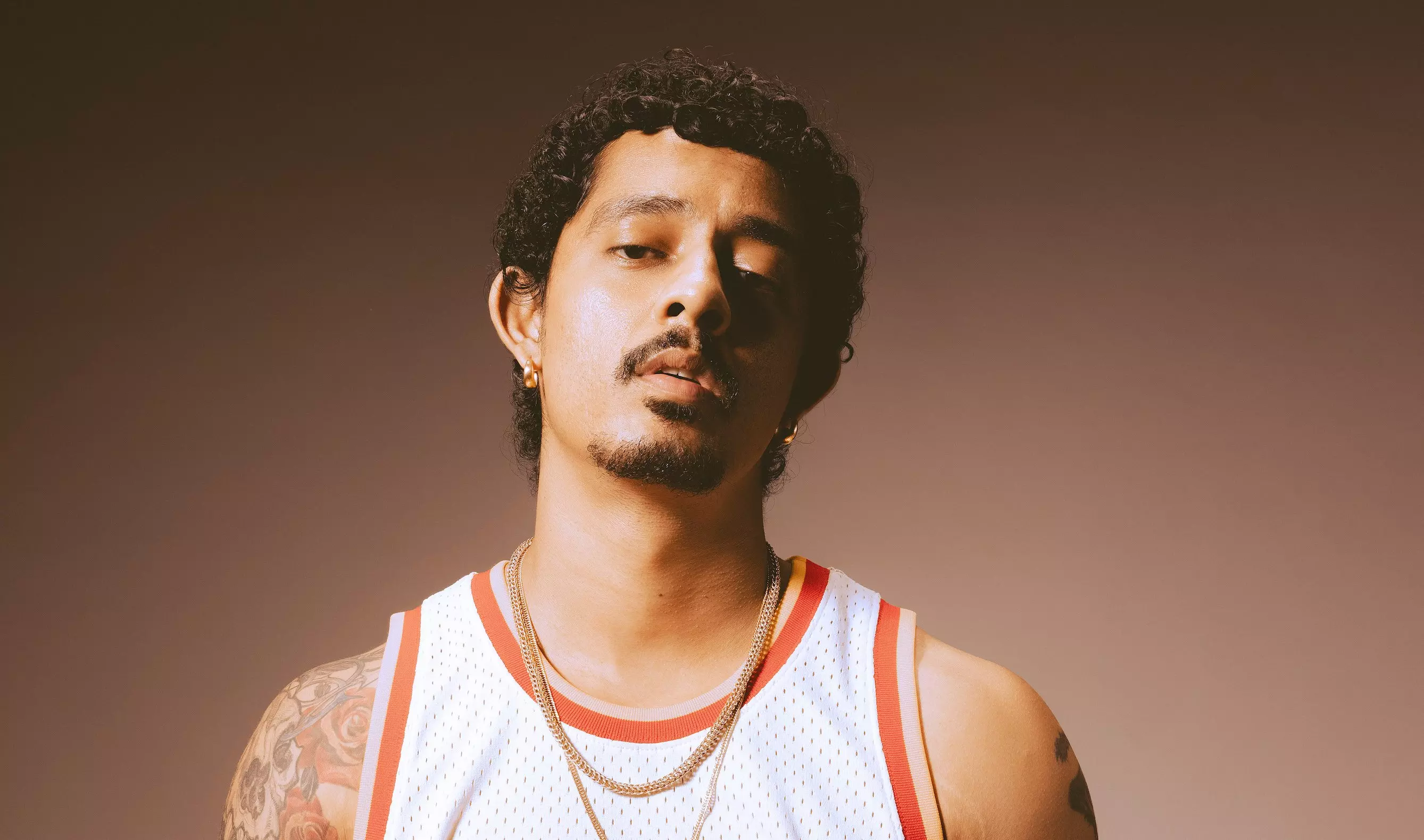
6 Indian Hip-Hop Artists To Know: Hanumankind, Pho, Chaar Diwaari & More
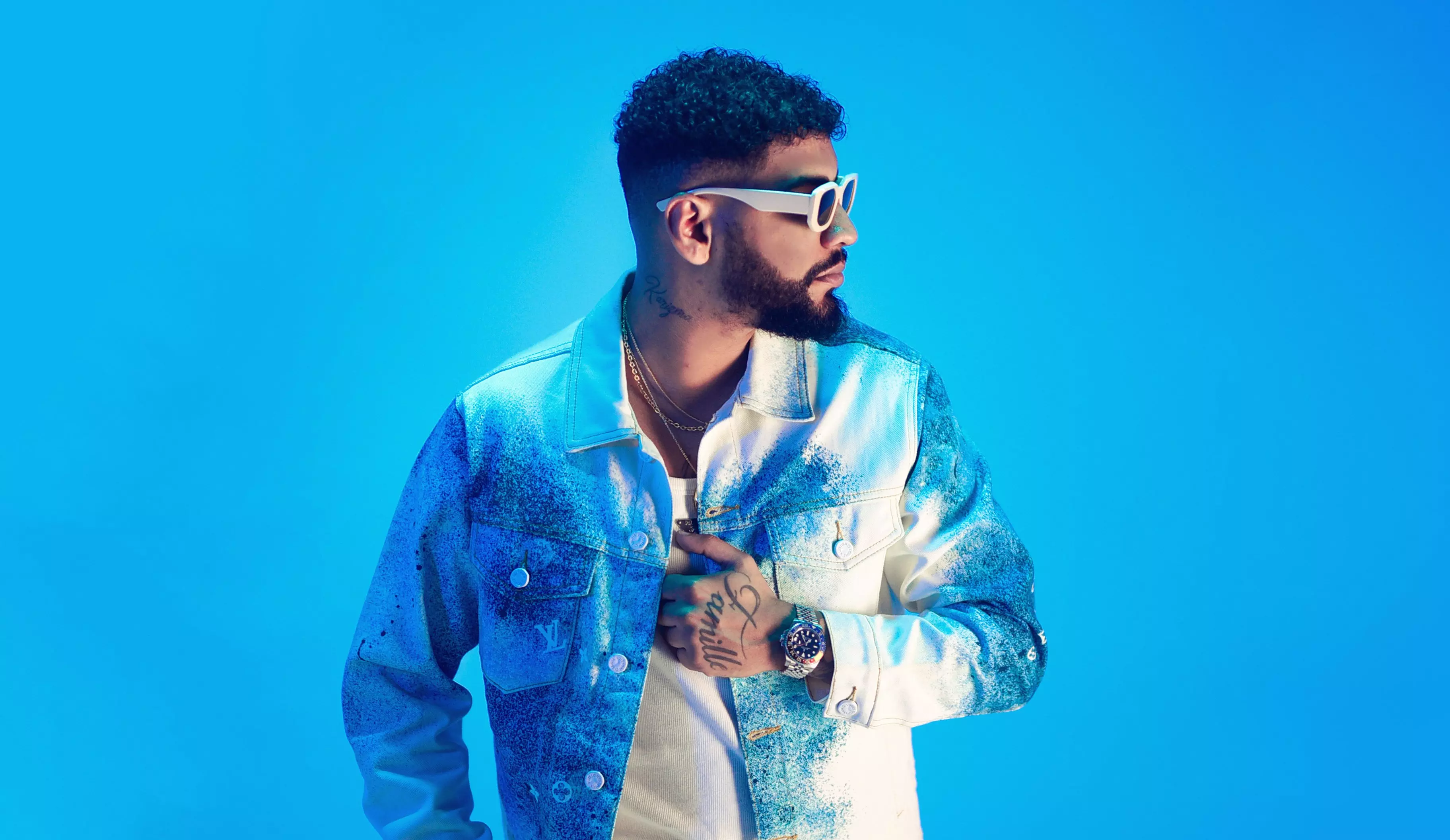
5 Independent Record Labels Bringing The Sounds Of The Middle East & North Africa To The World
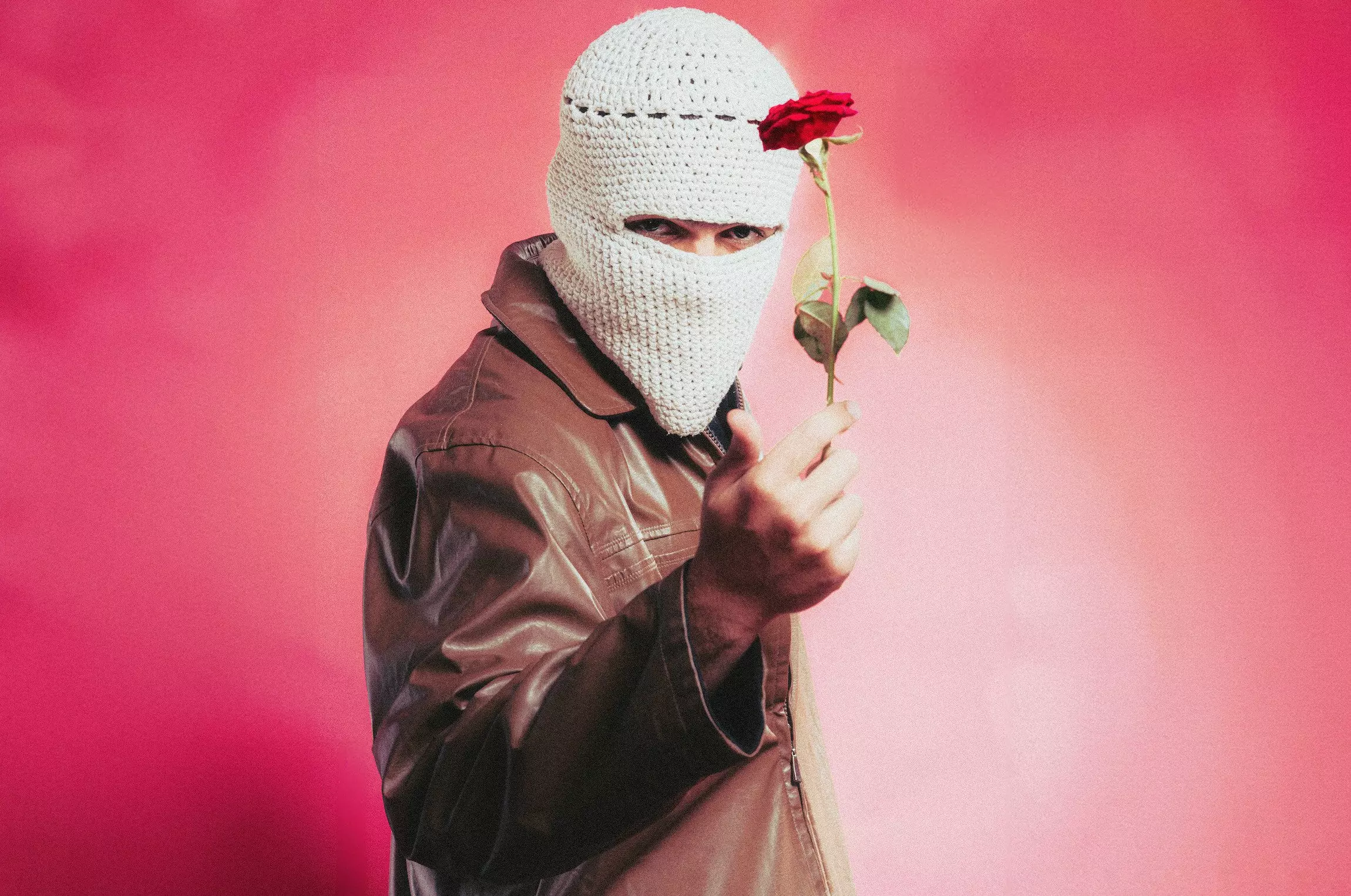
Get To Know TUL8TE, The Rising Arab Pop Star Bringing Egyptian Culture To The World
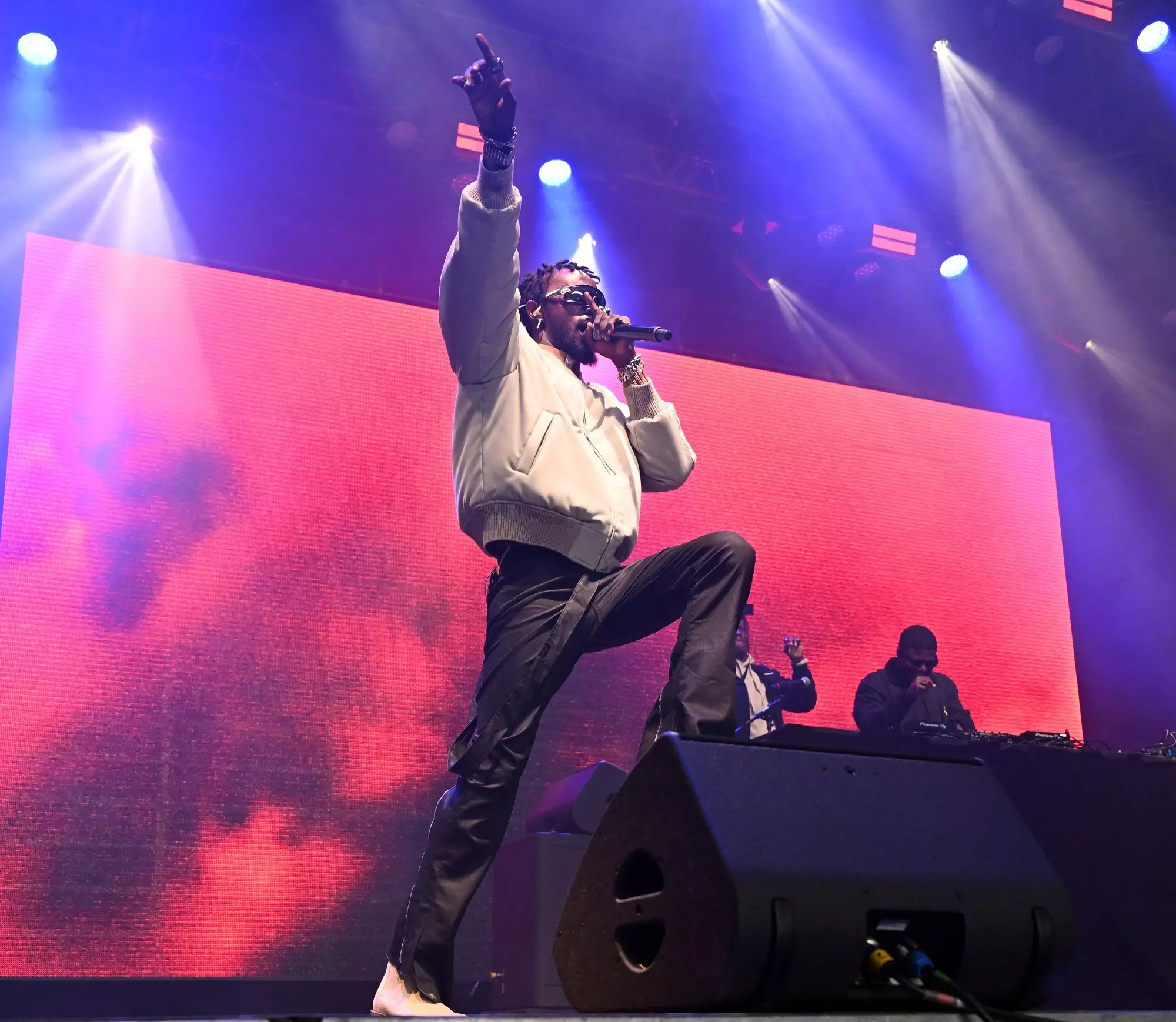
10 Artists Essential To Ghanaian Hiplife: Reggie Rockstone, Sarkodie, Mzbel & More

Watch LOBODA Perform "Mentor 2.0"
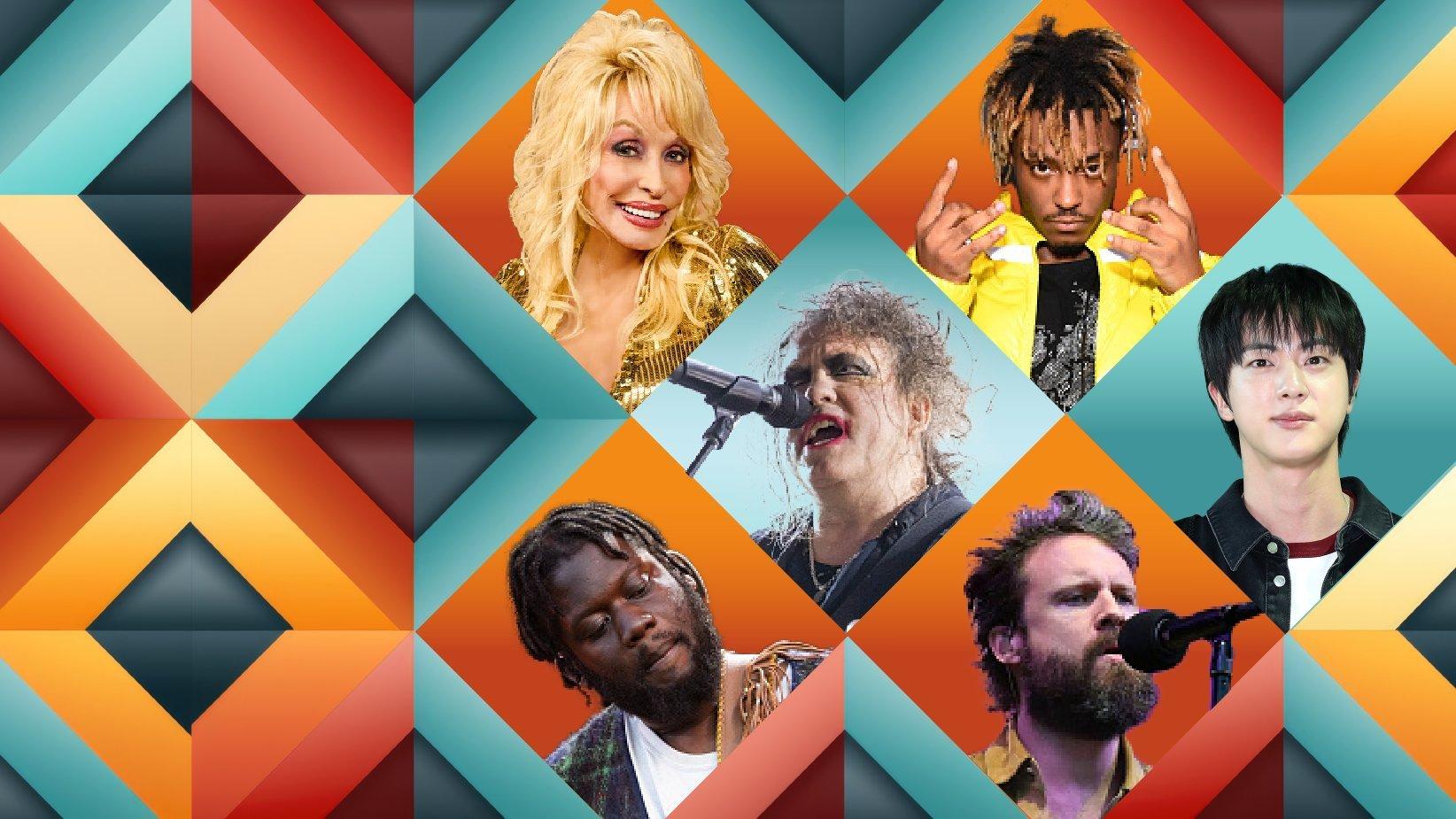
Photos: Jon Morgan/CBS via Getty Images; Scott Legato/Getty Images; Dave Kotinsky/Getty Images for Power 105.1; Han Myung-Gu/WireImage; Gilbert Flores/Variety via Getty Images; Matt Jelonek/Getty Images
list
14 Must-Hear Albums In November: The Cure, Dolly Parton, Jin Of BTS, Ab-Soul, & More
November's highly anticipated album lineup features U2's 'How to Re-Assemble An Atomic Bomb,' a posthumous release from Juice WRLD, Dwight Yoakam's 'Brighter Days,' Father John Misty's 'Mahashmashana,' among many more.
The winds of November might be crisp and cold, but they bring along a collection of sizzling new music. From bold debuts to heartfelt returns, new eras to final chapters, there's no shortage of options to warm you up this month.
On the first Friday of the month, goth band The Cure makes their return after 16 years, and R&B sensation Jacquees releases the suggestive Baby Making. In the following weeks, British trio FLO will release their anticipated debut, Access All Areas, and BTS's Jin will finally drop Happy, his first solo album.
And there's more: nu metal trailblazers Linkin Park will enter a new era with From Zero, Dolly Parton enlisted her family to create the expansive Smoky Mountain DNA – Family, Faith & Fables, and 2020 Mercury Prize winner Michael Kiwanuka will drop Small Changes.
Lastly, the third and final posthumous album by rapper Juice WRLD will also be out this month, and Irish megastars U2 are going to celebrate the 20th anniversary of How To Dismantle An Atomic Bomb with a shadow album titled How To Re-Assemble An Atomic Bomb.
To guide you through this eventful month, GRAMMY.com compiled a list with the 14 must-hear releases of November 2024. Check them out below.
CHASE ATLANTIC — 'Lost In Heaven' (Nov. 1)
Australian trio CHASE ATLANTIC continue to reach for the stars. Following performances at Bonnaroo, Lollapalooza, and the main stage at Reading & Leeds in 2023, the band is set to release their fourth studio album, Lost In Heaven, on Nov. 1st.
Led by singles "Die For Me," "Doubt It," and "Ricochet," the band continues to expand their atmospheric, genre-blurring sound. A press release notes that they are poised to break boundaries once again, "diving deeper into their distinct world of hypnotic melodies, sonic experimentation, and epic live shows." The 2023 single "Mamacita" also features on the tracklist.
To promote the new record, they launched an ongoing tour across North America, with rapper 24KGOLDN as a special guest. The tour began on Oct. 16 in Dallas, and will wrap on Nov. 19 in Los Angeles. In December, they will continue with six additional shows in Australia and New Zealand.
The Cure — 'Songs Of A Lost World' (Nov. 1)
In September, English goth band The Cure released "Alone," their first new song in 16 years. Along with it came also the announcement of their fourteenth LP, Songs Of A Lost World, set for release on Nov. 1.
Frontman Robert Smith shared in a press release that "Alone" was the track that "unlocked" the new album. "As soon as we had that piece of music recorded I knew it was the opening song, and I felt the whole album come into focus," he noted. The album, in progress since 2019, includes tracks "Alone" and "A Fragile Thing," which were performed live during the band's Shows Of A Lost World tour in 2022 and 2023.
The 8-track ensemble follows 2008's 4:13 Dream, and was entirely written and composed by Smith — a feat he hadn't repeated since 1985's The Head On The Door. Smith also co-produced the record with the help of Paul Corkett.
Masked Wolf — 'The Devil Wears Prada But God Wears Gucci' (Nov. 8)
After his 2019 song "Astronaut in the Ocean" became a sleeper hit in 2021 thanks to TikTok, the life of Australian rapper Masked Wolf (Harry Michael) changed dramatically. He quit his day job to focus on music full-time and swiftly released Astronomical, his first mixtape.
Three years later, Michael swapped the space suit for a superhero persona. "I feel it, my desire, yeah, I'm reaching in my soul /They tryna take me out, yeah, they wanna break my bones /It's like I've been bit, but I still keep control /I will never give up, I never give up," he raps in "Spiderman in Space," a single off his upcoming debut LP, The Devil Wears Prada But God Wears Gucci.
Set to drop on Nov. 8, the album showcases Michael's versatility and immutable determination, traits also evident on singles "Give Me My Heart Back" with Lecrae, "Sweeter," "Tell Me Why" with Kota the Friend, and "Hell or High Water."
Ab-Soul — 'Soul Burger' (Nov. 8)
After 2022's lauded Herbert, Los Angeles rapper Ab-Soul is gearing up to release the mixtape Soul Burger on Nov. 8. The project is a tribute to the artist's childhood friend, Doe Burger, who passed away in December 2021.
In a recent interview with Sirius XM's "Effective Immediately", the Top Dawg Entertainment star shared that he's "been trying to channel" Burger's spirit in this release. "My best way of doing that is through music. And hence the title, it's the fusion of me and him. We were literally Huey and Riley from The Boondocks, to where this album is not me — it's Soul Burger. It's like a new artist… So I recommend everybody listen to it in terms of that."
The mixtape includes singles "Squeeze 1st 2" and "All That" featuring JasonMartin (formerly known as Problem) and Thirsty P. In June, Ab-Soul reunited with his Black Hippy bandmates Kendrick Lamar, Jay Rock, and Schoolboy Q at Lamar's Pop Out Concert in California.
FLO — 'Access All Areas' (Nov. 15)
British R&B trio FLO have announced their much-awaited debut LP, Access All Areas, set to release on Nov. 15. Executive produced by MNEK, the album follows the success of singles "Walk Like This," "Caught Up," and "Check."
"Access All Areas is a labor of love," the group, composed of Jorja Douglas, Stella Quaresma, and Renée Downer, said in a press statement. "To us it represents our growth and dedication to making girl group history, to making a project we are truly proud to call our debut album." The album is described as a "manifesto" for FLO, approaching themes of love, sisterhood, and navigating life as young Black women.
Starting Nov. 11, the trio will kick off their AAA: Intimate Acoustic Shows tour in record stores across the U.K., with stops in Nottingham, Kingston, London, Birmingham, and Manchester.
BoyWithUke — 'Burnout' (Nov. 15)
"I was feeling tired just because it's been go, go, go since I started," said TikTok sensation BoyWithUke in a statement about his upcoming album, Burnout. "I think I had some real identity issues with who I am. Like am I this extroverted character or am I Charley Yang? But now I think I've found a really good balance of work and personal life."
Charley Yang, who rose to fame after going viral in 2021 with ukulele hits like "[Toxic](https://www.youtube.com/watch?v=Mvaosumc4hU)" and a signature LED mask — removed only last year — began exploring a more open and experimental side to his music once he revealed his face. "For the longest time I had made songs to impress this person I was in love with as well as music executives, and once that was gone things felt weird," he added. "I felt a little bit lost, but in a larger and more positive way, I felt free with freedom to make mistakes and basically whatever I wanted — I think that's what *Burnout* is."
Burnout will be Yang's final record under the BoyWithUke moniker, but it already points to new musical directions. Lead singles "Ghost" and "Can You Feel It?" build on his previous work, while "Gaslight" takes a daring plunge into alt-rock and electronic beats, showcasing Yang's rawest performances yet.
Jin — 'Happy' (Nov. 15)
The first BTS member to complete his military enlistment, Jin was also the only one who hadn't released a solo LP — until now. The wait is over as he announced the release of his debut album, Happy, set for release on Nov. 15.
According to a press release, Happy is a six-track collection that chronicles Jin's journey to find true happiness. Through the album, he shares "honest thoughts and feelings on what happiness means to him," and aims to give listeners "a sense of strength and comfort in their day-to-day lives."
The album comes two years after Jin's co-written collaboration with Coldplay, "The Astronaut." To build anticipation, he has also released the complete version of his 2021 viral hit, "Super Tuna," along with the rockabilly-inspired lead single, "I'll Be There."
Dolly Parton & Family — 'Smoky Mountain DNA – Family, Faith & Fables' (Nov. 15)
Dolly Parton continues to amaze. After being inducted into the Rock & Roll Hall of Fame and releasing her first rock album, Rockstar, last year, the country queen returns on Nov. 15 with a project that explores her deepest roots: her family.
Smoky Mountain DNA – Family, Faith & Fables is a prodigious visual and musical project featuring both branches of Dolly's family, the Partons and the Owens. Spanning nearly 40 tracks, the album was produced by her cousin, Richie Owens, and showcases performances by various family members, including some who have passed away and others from the current generation.
In a statement, Smoky Mountain is described as "a passage through the lineage and ethos of a family that has deeply influenced one of the world's most beloved artists," tracing their journey from their U.K. origins in the 1600s to their present-day home in the Great Smoky Mountains of East Tennessee. A companion four-part docuseries is set to premiere in 2025.
Read More: 5 Ways Dolly Parton Has Promoted Peace & Global Unity
Dwight Yoakam — 'Brighter Days' (Nov. 15)
It's been nearly a decade since country superstar Dwight Yoakam released a new album, with his last being 2016's Swimmin' Pools, Movie Stars. That will change on Nov. 15, when Yoakam drops Brighter Days.
To announce his return, Yoakam dropped hit single "I Don't Know How to Say Goodbye (Bang Bang Boom Boom)" featuring Post Malone, a track he wrote specifically for this collaboration. Brighter Days has been self-produced over the past three years, with Yoakam co-writing most of the tracks and including covers of classics such as "Keep On The Sunny Side" by the Carter Family, "Bound Away" by Cake, and "Time Between" by The Byrds.
In a statement, the album is described as "at once timeless and timely," filled with "a modern appreciation for country music's history with the trailblazing rock and roll spirit of California." Yoakam is currently on a U.S. tour.
Linkin Park — 'From Zero' (Nov. 15)
Linkin Park is returning from hiatus with full force. On Nov. 15, the nu-metal legends will release their eighth LP, From Zero, introducing a new era for the band following the announcement of new vocalist Emily Armstrong (of Dead Sara) and drummer Colin Brittain.
"Before Linkin Park, our first band name was Xero. This album title refers to both this humble beginning and the journey we're currently undertaking," said co-vocalist Mike Shinoda in a statement. From Zero marks the band's first album without frontman Chester Bennington, who passed away in 2017, and former drummer Rob Bourdon. "Sonically and emotionally, it is about past, present, and future — embracing our signature sound, but new and full of life. It was made with a deep appreciation for our new and longtime bandmates, our friends, our family, and our fans," added Shinoda.
The album's lead single, "The Emptiness Machine," was followed by "Heavy Is The Crown," which became the main theme for Riot Games' 2024 League of Legends World Championship, and the recent release "Over Each Other." Ahead of the album, Linkin Park played a series of arena shows in September, with stops in Los Angeles, Seoul, and London. The tour is set to conclude on November 16 in São Paulo, Brazil.
Michael Kiwanuka — 'Small Changes' (Nov. 22)
"Whilst making this album I was really thinking about my motives for making music and making records," shared London-born singer Michael Kiwanuka on Instagram, when announcing his upcoming album, Small Changes. "I never started writing music/songs for anything other than a way to connect to myself and others, but what am I trying to say now?"
As the album neared completion, Kiwanuka realized that expressing the "small changes" he was experiencing, both in his voice or and his music, was reason enough. "And living for me is just that, remaining as true as possible despite all the changes around us," he added.
Small Changes follows Kiwanuka's 2020 Mercury Prize-winning album, Kiwanuka. Co-produced by Danger Mouse and Inflo, the LP's first single, "Floating Parade," dropped in July, followed by "Lowdown (Part I)" and "Lowdown (Part II)." Kiwanuka recently completed a North American tour with Brittany Howard and will play six intimate shows in the U.K. after the album's release.
Father John Misty — 'Mahashmashana' (Nov. 22)
November also marks the return of singer/songwriter Josh Tillman with his sixth album under the stage name Father John Misty. According to a press release, the album's title, Mahashmashana, derives from the Sanskrit word Mahāśmaśāna (महामशान), meaning "great cremation ground, all things put going thither."
Produced by Tillman and Drew Erickson, with longtime collaborator Jonathan Wilson serving as executive producer, the album features eight tracks spanning over 50 minutes. Half of the album has already been previewed through singles "I Guess Time Makes Fools of Us All," "She Cleans Up," "Screamland," featuring Low's Alan Sparhawk, and "Josh Tillman and The Accidental Dose."
After supporting Kacey Musgraves on her Deeper Well Tour during September and October, Tillman announced he will headline a North American tour beginning February 2025, followed by a European leg in May.
Juice WRLD — 'The Party Never Ends' (Nov. 22)
After years of teasing, Juice WRLD's third and final posthumous album, The Party Never Ends, is set to be released via Grade A and Interscope Records on Nov. 22. This will be his first full-length project since 2021's Fighting Demons, which included collaborations with Polo G, Justin Bieber, BTS, and more.
Lil Bibby, founder of Grade A, shared on Instagram that "we want this album to feel like a celebration/party. No more mourning, I want everyone that Juice loved while he was here to help celebrate, especially his fans whom he loved."
The Party Never Ends follows the release of December 2023's single "Lace It" featuring Eminem, produced by Benny Blanco, which addresses the dangers of addiction. In September 2024, Juice WRLD's legacy was further expanded with the EPs The Pre-Party and The Pre-Party (Extended), each featuring two tracks, including the single "Lightyears" with Young Thug.
U2 — 'How To Re-Assemble An Atomic Bomb' (Nov. 22)
In November 2004, Irish band U2 topped the charts with their iconic album How To Dismantle An Atomic Bomb. The album and its singles earned eight GRAMMYs between 2005 and 2006 and was described by vocalist Bono as their "first rock album" ever.
As the 20th anniversary approaches, U2 will commemorate the milestone with a remaster and re-release of the original album, along with a new project titled How To Re-Assemble An Atomic Bomb — a 10-track "shadow album" that includes new and unreleased songs from the band's archives.
"The sessions for How To Dismantle An Atomic Bomb were such a creative period for the band, we were exploring so many song ideas in the studio," bassist The Edge said in a press statement. "For this anniversary edition, I went into my personal archive to see if there were any unreleased gems and I hit the jackpot. What you're getting on this shadow album is that raw energy of discovery, the visceral impact of the music, a sonic narrative, a moment in time, the exploration and interaction of four musicians playing together in a room… this is the pure U2 drop."
Among the tracks, fans might recognize "Luckiest Man In The World" as the leaked demo "Mercy," now officially released. Five other songs have been remastered, including "Don't Wanna See You Smile" and "All Because of You 2." The remaining four tracks are entirely new, never-before-heard recordings, including the single "Country Mile."
Latest News & Exclusive Videos
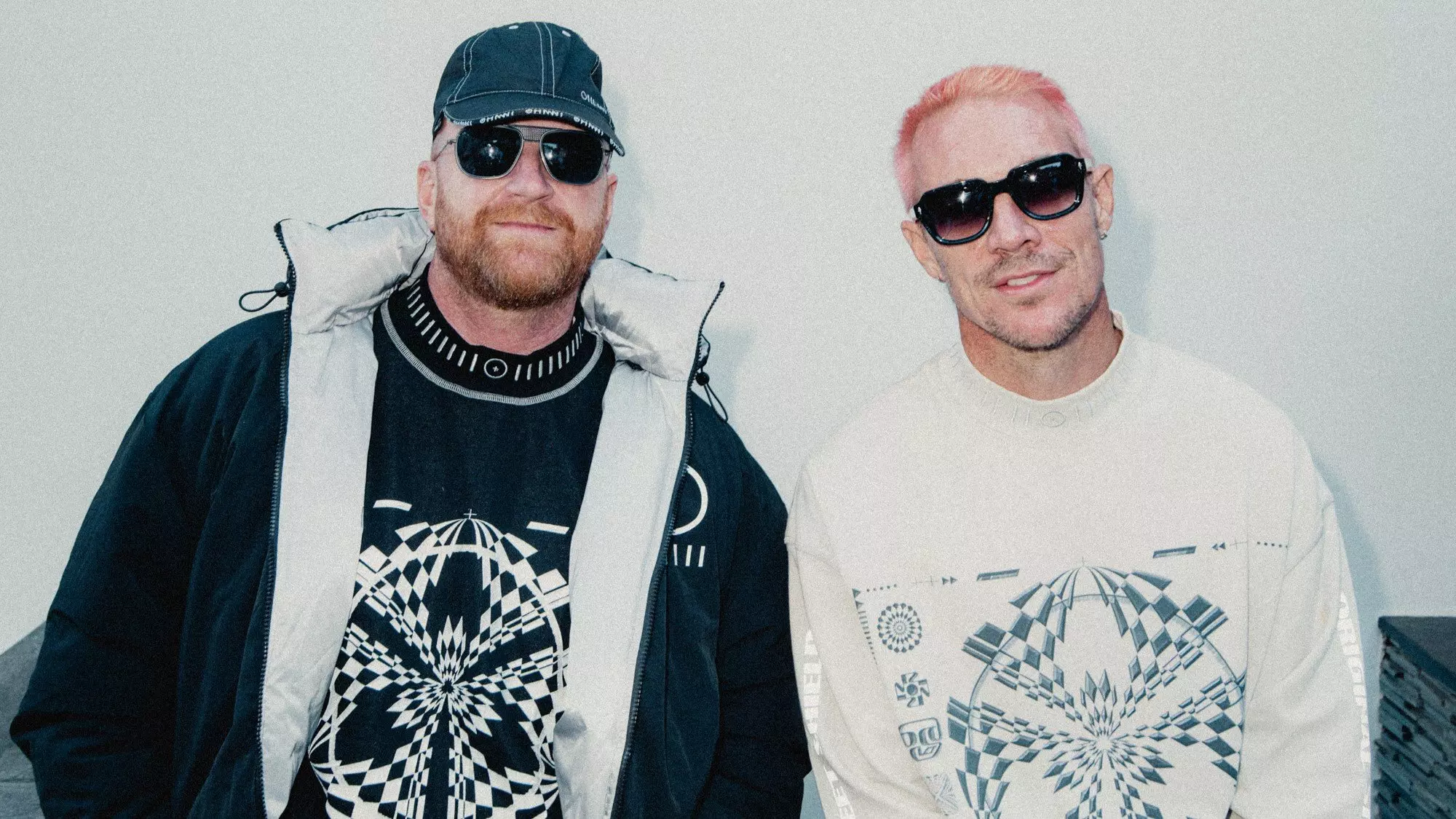
How Major Lazer's 'Guns Don't Kill People…Lazers Do' Brought Dancehall To The Global Dance Floor

YOASOBI Performs "Idol" | Global Spin
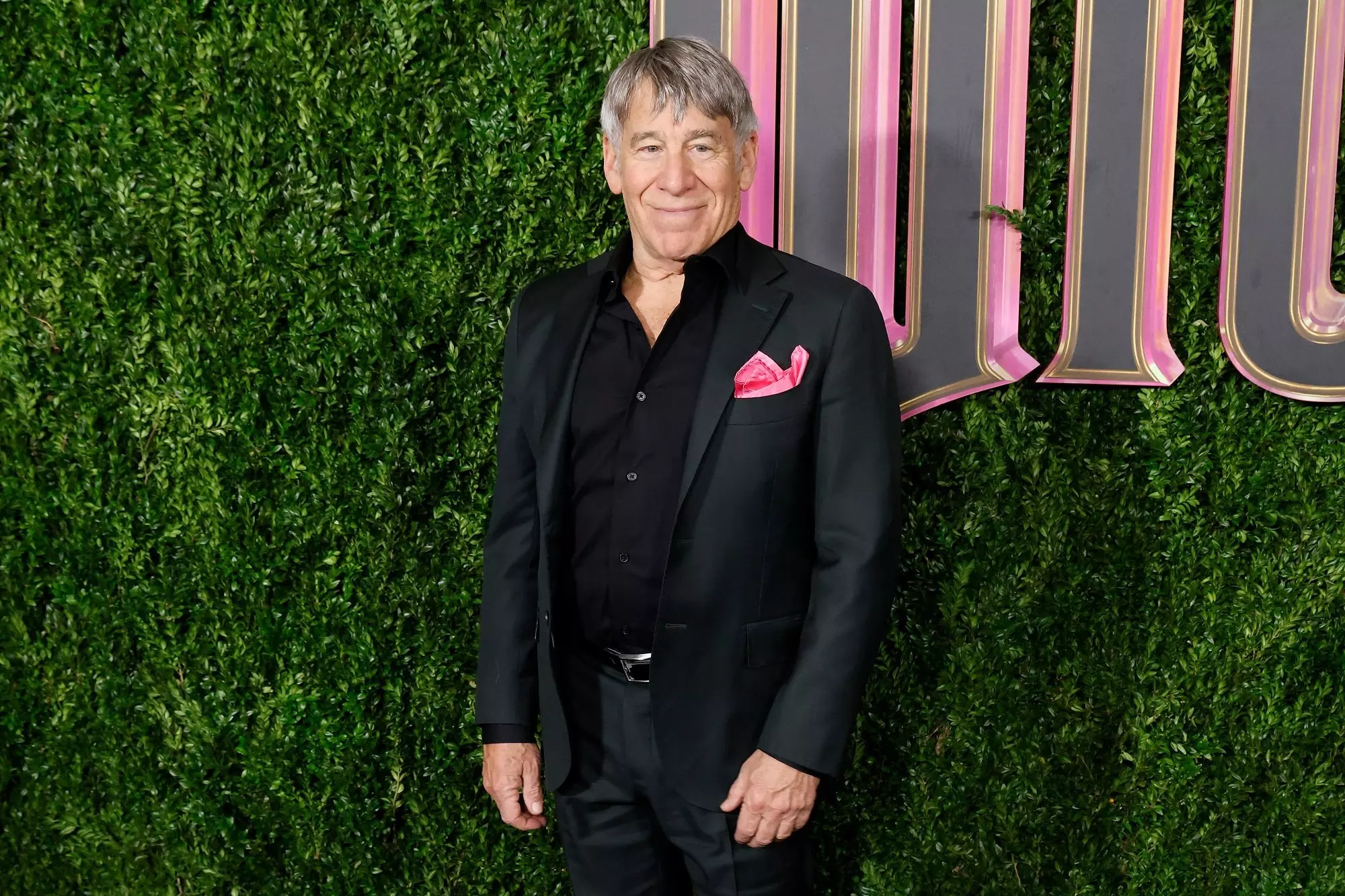
'Wicked' Composer Stephen Schwartz Details His Journey Down The Yellow Brick Road
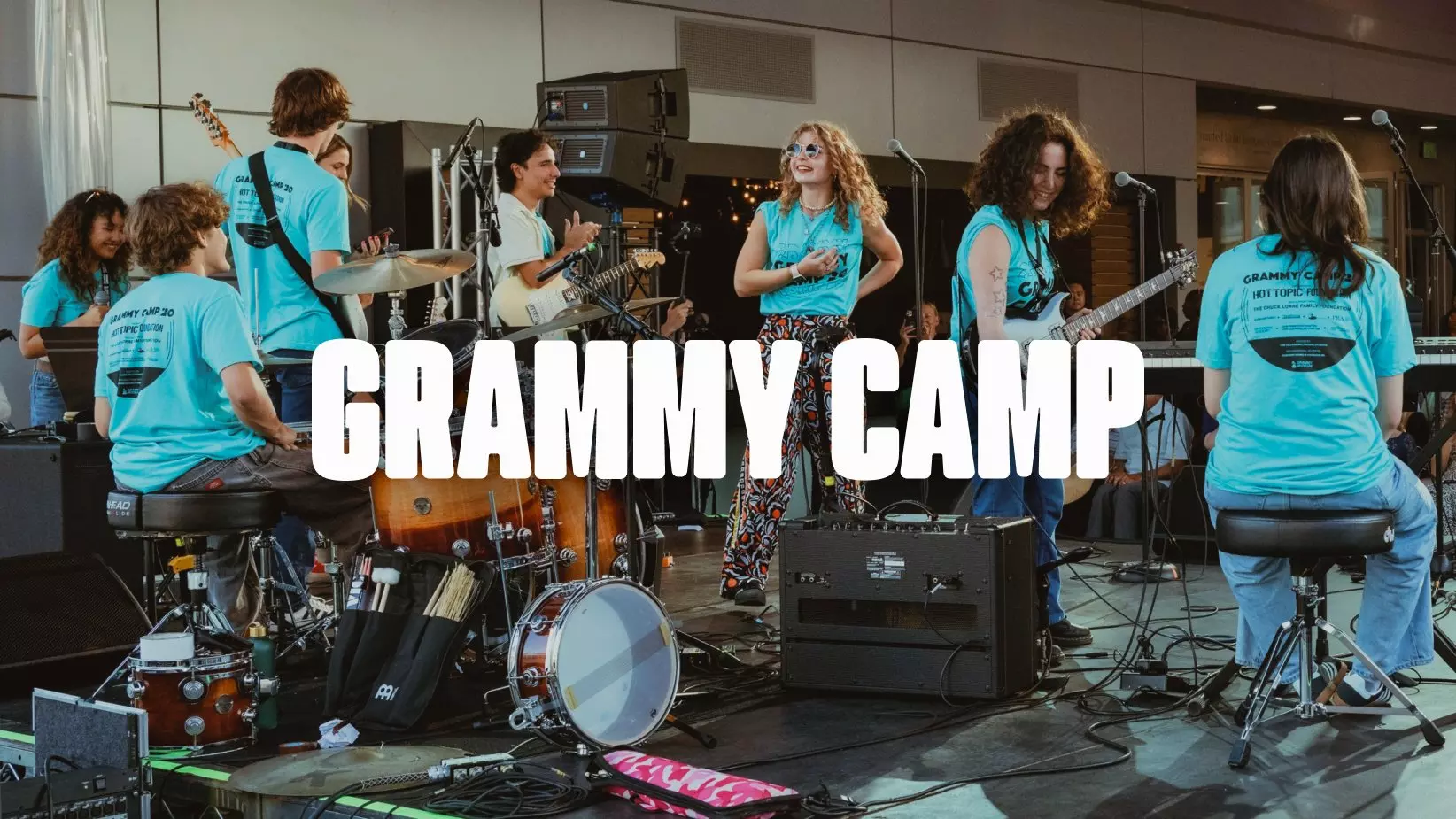
GRAMMY Museum Expands GRAMMY Camp To New York & Miami For Summer 2025
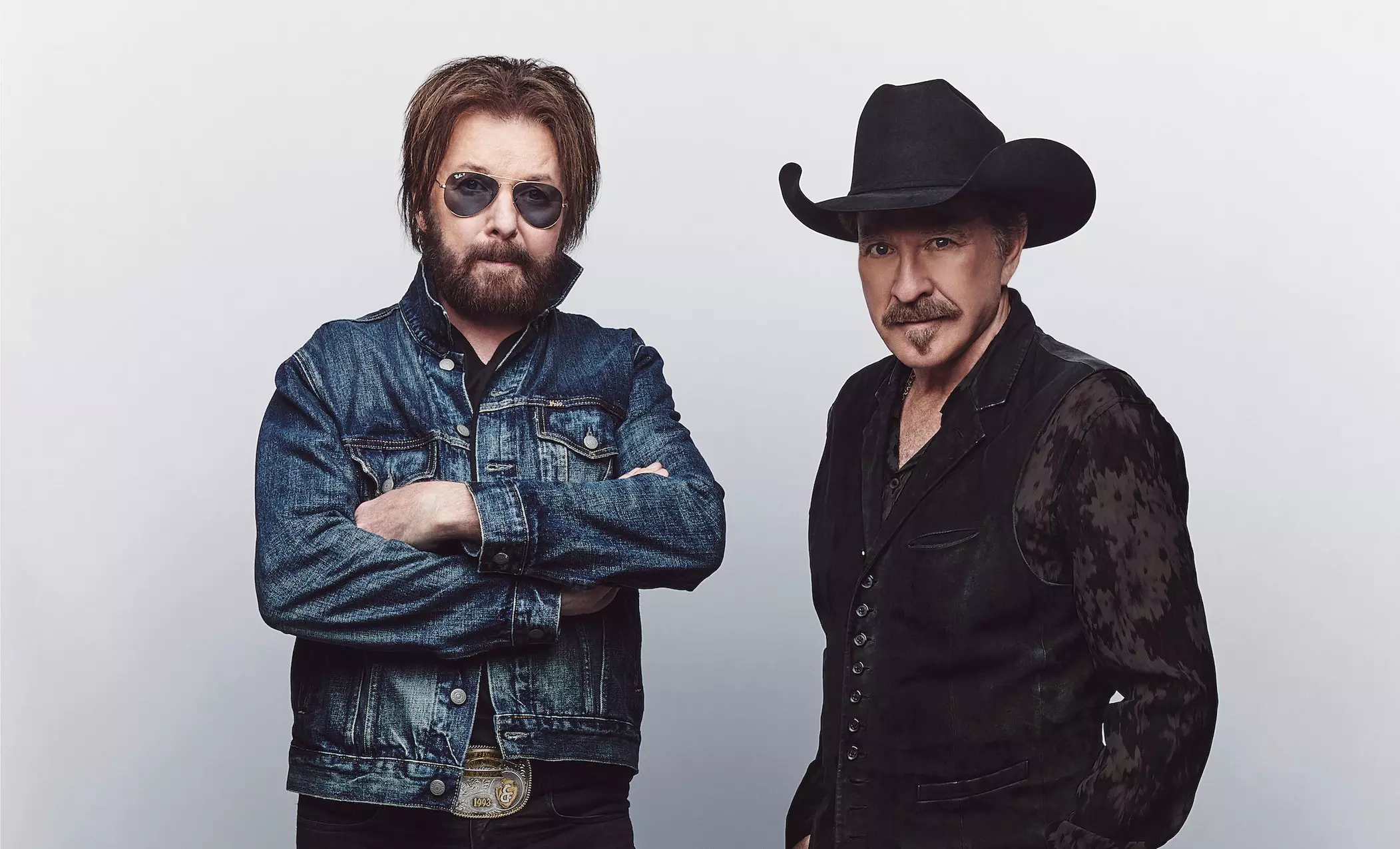
Living Legends: Brooks & Dunn On How 'Reboot II' Is A Continuation Of "Winging It From Day One"
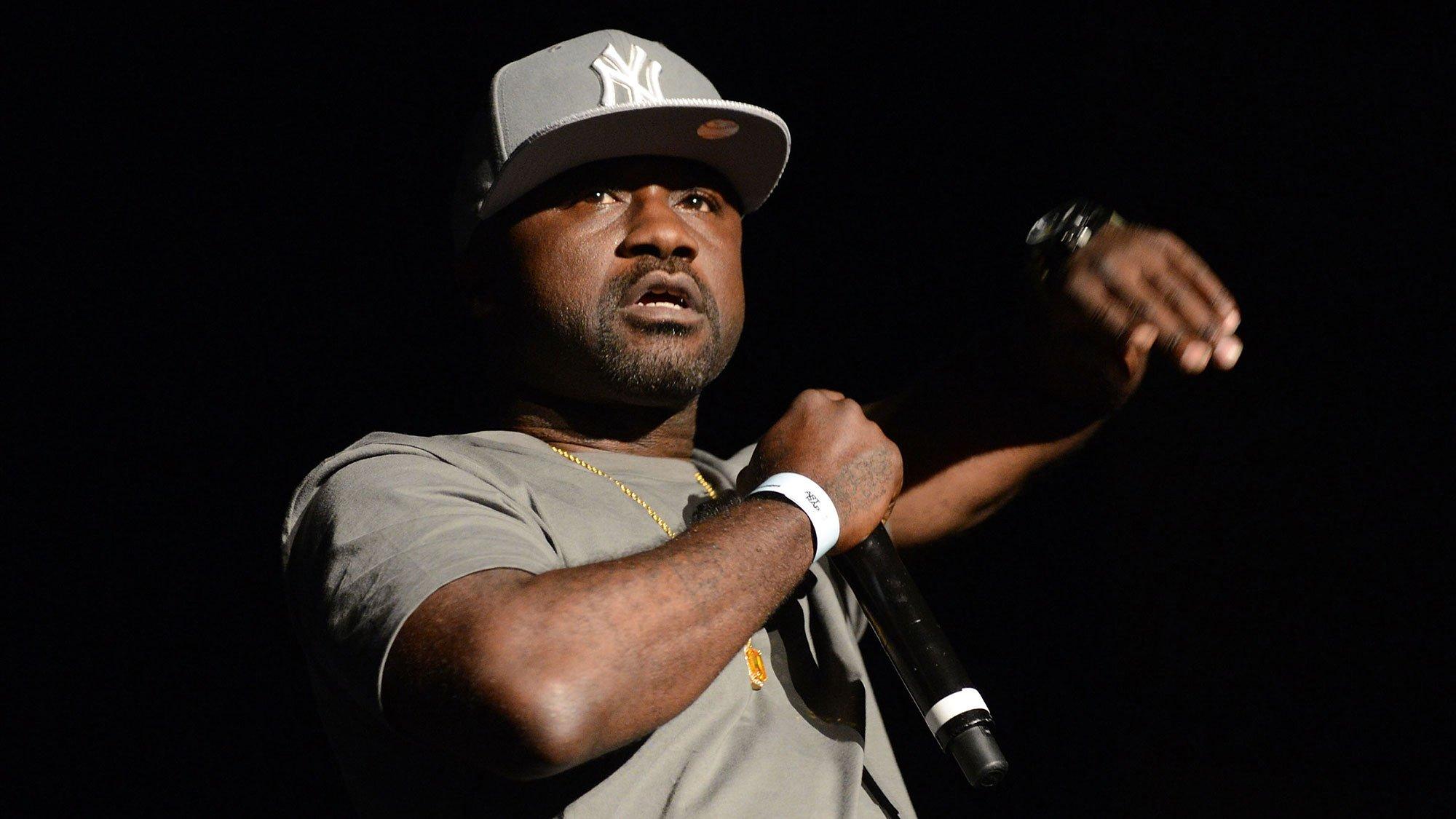
Photo: Scott Dudelson/Getty Images
interview
Living Legends: Havoc Talks Mobb Deep’s Legacy & The Double-Edged Life Of A Rapper-Producer
GRAMMY.com spoke with Havoc before Mobb Deep drops their final album featuring previously recorded lyrics from the late Prodigy and longtime producer Alchemist on Nov. 2.
Havoc is excited. The Mobb Deep MC and acclaimed industry producer is preparing to film a video with Wu-Tang Clan MC-turned-actor and Internet crush Method Man, and the thought of new music for the masses has him thrilled to pieces.
"This shit is about to be fire," he says enthusiastically. "I can't wait for everybody to check it out."
This single is dropping as part of a larger project with Method Man, which will serve as a tribute to their fallen comrades Ol' Dirty Bastard (ODB) and Prodigy, respectively. But that's not the only new music in the pipeline: after getting the blessing from his late rap partner estate, Havoc will drop the final Mobb Deep album featuring never-before-released verses from the late, great Prodigy, and production by longtime Mobb Deep producer Alchemist, on November 2nd, 2024 — on what would have been Prodigy's 50th birthday.
Born Kejuan Muchita in Brooklyn, New York, Havoc was raised in the Queensbridge Housing Project — the same place that would give the world rappers like MC Shan, Cormega, and of course, Nas — and attended the High School of Art & Design in Manhattan, where he met Albert Johnson (later known as Prodigy). There, the duo would form Poetical Prophets, which later became "The Infamous" Mobb Deep.
Havoc isn't only known for his rhymes — whether as a solo artist, notably on "American Nightmare," where he traded bars with ex-Juice Crew MC Kool G Rap, or as one-half of Mobb Deep. He's also become one of the most acclaimed producers in hip-hop, sitting behind the boards crafting tracks for Lil Wayne, 2 Chainz, and Eminem.
GRAMMY.com spoke with Havoc to talk about his new projects, his legacy with Mobb Deep, and how being both a rapper and a producer is a blessing and a curse.
This interview has been edited for length and clarity.
Let's just dive right into it. Let's talk about your new single with Method Man and your new album.
The concept of the album is to pay tribute to our loved ones who passed away — to Ol' Dirty Bastard, and to Prodigy. We thought it would be cool to do a salute to them. Method Man and I had worked together before this — and seeing that we worked together so well, you know, we decided to do it again.
With the Mobb Deep album: that's been a long time in the making. I wanted to make it years ago, but it wasn't completely my decision. I also needed to work with Prodigy's estate, and they needed time to come to terms with the idea. I gave them as much time as they needed — and of course, we hit a few bumps in the road, but nothing major. We were finally like, "It's time." It's time to continue with the Mobb Deep legacy — to remember Prodigy — and to give the supporters the music that they miss, and love, from Mobb Deep.
Alchemist was one of the people that we worked with when we did the Mobb Deep albums. We were always in contact because we were good friends — and I wanted to have him included to keep up with the Mobb Deep tradition. His inclusion is what our supporters would expect from a classic Mobb Deep album.
I wanted to explore, a little bit, what you said earlier about collaborating with Method Man to both pay tribute to your fallen comrades, and to produce new music. How much of it would you say is paying tribute to ODB and Prodigy, while educating young heads about their history — and how much of it is the "new sound" that's representative of where you two are in your careers right now?
It's equally a bit of both. We're talking about where we're at right now in our careers and our lives — we're both older now. Method Man really doesn't like to curse too much, and I understand — but I'm on there, talking my talk, as usual. Nonetheless, Method Man is in the greatest space he's ever been in, in his life.
You also have a great deal of influence in hip-hop as a producer. Some may go so far as to say that you're one of the most iconic producers of all time. From your perspective, the two-fold question is this: would you say your impact is more felt as a rapper, or as a producer? And is that your legacy, in this industry, and how you'd like to be remembered?
I believe I'm better received as a producer than as a rapper — which is kind of like a gift and a curse. It doesn't bother me too much, but I pour a lot of my heart into writing — I started as a rapper first, and did production later.
I don't know how the transition happened — how I became better known for my production work more than my rapping — but I'd love for people to know how rapping is indeed my passion, because, to me, it's tough being a rapper that writes his lyrics and does his production at the same time. That's a big leap. If you could ask any rapper that same question, they'd tell you that it's a lot to do.
I'm happy that I'm being recognized, but I'd like respect for my pen game.
Let's go back to the early years — 1991, and your appearance in "Unsigned Hype" in The Source when you started to make headway in the mixtape scene in New York. Did you recognize that you were tapping into something special, or did that recognition come later?
I think we knew we tapped into something special, whether people recognized it at the time or not. So, when the recognition from a broader audience came along, it just affirmed what we knew all along.
With "Unsigned Hype," that opened the floodgates for us. One thing led to another, we signed our first record deal, and that's when we started releasing our singles and working with Wu-Tang Clan and other artists. That's when we took hip-hop by storm. So we knew that we'd tapped into something special, and we hadn't even finished the full album yet.
Read more: The Unending Evolution Of The Mixtape: "Without Mixtapes, There Would Be No Hip-Hop"
Where did your mind go with it, once you realized that? Did that change the way you made music, from that point forward?
I believe so. We had a unique recipe, and we followed that recipe for the rest of our career. And we knew that people wanted a specific sound from us, and they wanted us. They didn't want Nas, or Big L, or even Biggie. They wanted Mobb Deep. So we never tried to be like anyone else — we just gave them us, and that was the winning formula.
How did you handle being drawn into the intense East Coast-West Coast feud, particularly after 2Pac named you in 'Hit 'Em Up'?
We were ready for it. We were prepared for war. Look, hip-hop is a contact sport. It is very competitive. So I just looked at it as a rap battle. At the time, I looked at it and thought, "Well, maybe when we see each other in person, there will be a little scuffle." We're artists — we might rap about certain things, and speak about political issues and life in the hood, but at the end of the day, we're entertainers.
I thought people had more respect for human life. I never thought it was a life-and-death game. But when it became a life-and-death game, it shook the core of my existence. I didn't like it at all. And I don't believe that anybody involved — not Pac, not Big, not anybody — deserved to lose their life over some rap beef.
It made me paranoid, and I believe I still have PTSD over it. Biggie Smalls and I share the same birthday. So it hits closer to home for me.
Did you ever get a chance to squash the beef with Pac while he was still alive?
Not at all. He died in the middle of our beef. We put a record out called "Drop a Gem on 'em" in response to "Hit ‘Em Up." We put the single on the radio — it was clear we were dissin' Pac — and, not even seven days after we first dropped the single, we found out he got shot in Vegas. And we pulled the record from the radio — purposefully.
It wasn't until maybe 20 years after the fact that we got a chance to speak with Snoop Dogg. I never thought I'd get a chance to chill around West Coast rappers, but time heals everything. Now, I'm friends with Tha Dogg Pound. I'm friends with Snoop Dogg. I'm in Los Angeles all the time. But that was way down the line.
You have to understand that when it came to Snoop, we didn't have any "beef" to squash, especially after Biggie and Pac were murdered. Once we started hanging out with West Coast artists, we knew that beef was over — and I believe the media hyped it up more than it needed to be, to be honest. No life is worth losing over some rap beef.
For a brief period, you and Prodigy weren't on the best of terms. You even engaged in a bit of a Twitter (now X) back-and-forth that left many fans — myself included — bewildered. Looking back on all of it now, what was the issue at hand, and how did you guys resolve it?
Prodigy and I have known each other for so long, we're brothers. Internally, differences were brewing — but when you're brothers, you're going to get into arguments and disagreements, but at the end of the day, you still love one another, and you're going to work things out.
It was never meant to spill over into the public. And I take responsibility for that. I expressed myself publicly at a time when I shouldn't have been near any electronic devices, you know what I'm saying? I was drinking, and you're emotional when you're drinking — but when I was sober, I realized what I was doing was wrong.
I'm not going to go on record to say what we were beefing about, but at the time, I thought it was valid. Prodigy and I squashed it a year later, though — we knew it was bad for business, plus, we'd known each other for too long to let it go on like this.
Let's touch a little bit on the G-Unit years. There's a lot that you did with the label — and you'd already had that relationship with 50 Cent before the signing. So, tell us what you learned during the G-Unit era about the business, hip-hop, and so on.
I'd begun working on a solo album, and the late Chris Lighty was my manager. He'd told me about this young dude named 50 Cent, and I heard some of his stuff and I was blown away.
I'd told Lighty that I wanted to work with Fif, and 24 hours later, I had him in my studio. At the time, he told me how much he'd admired Mobb Deep, while also hinting that he was considering working with Eminem and Dr. Dre, as they'd shown some interest. He'd even asked me what I thought he should do!
Well, my solo album never came out. Years later, when Mobb Deep got shifted around from label to label, and got dropped from Jive Records, Fif had already sold 10 million records with Get Rich or Die Tryin'. And I didn't believe that he'd even remember me — but when he heard what happened, he called me up and said he wanted to sign Mobb Deep.
Prodigy initially didn't want to do it, but he changed his mind once he sat down with 50 Cent. The rest, as they say, is history. I was so pleased to be down with a crew that had sold so many records. But a lot of our fans, at the time, was hatin' on it. They thought we'd sold out.
I don't even know where to begin with this, but: let's talk about Prodigy's death. It was a gut punch to me, and I can't imagine how it was for you. Where did you find the resolve to take on the responsibility of being the torch-bearer for all things Mobb Deep once Prodigy was gone?
I found it while I was thinking about Prodigy. I was thinking about him, and I was saying, "If God forbid, the shoe was on the other foot, he'd be moving forward." He'd be celebrating the Mobb Deep legacy. I don't think he'd want Mobb Deep to fall to the wayside. He'd be missing me like crazy, but he'd be taking Mobb Deep to the next level.
With that, I found the resolve. I then thought about the supporters, and how they deserved one last Mobb Deep project. And I'm gonna make sure that happens because I don't want to be the one that fumbled the ball just because Prodigy isn't here. I'm the one who has to make sure that the masses hear it.
And this is the last Mobb Deep album. At least, for now. There are still plenty of Mobb Deep verses to go around, but that's not for me to decide. I spoke to the estate about this album, and this album only. That's where my focus is.
So, after this final Mobb Deep hurrah, what is next for Havoc?
There are a lot of things I want to get involved with — documentaries, film scoring, getting my label off the ground, mentoring young artists — that I don't think I'll ever be bored. No, there won't be any Mobb Deep anymore, but there's still Havoc. And that's my legacy.
Latest News & Exclusive Videos

How Major Lazer's 'Guns Don't Kill People…Lazers Do' Brought Dancehall To The Global Dance Floor

YOASOBI Performs "Idol" | Global Spin

'Wicked' Composer Stephen Schwartz Details His Journey Down The Yellow Brick Road

GRAMMY Museum Expands GRAMMY Camp To New York & Miami For Summer 2025

Living Legends: Brooks & Dunn On How 'Reboot II' Is A Continuation Of "Winging It From Day One"
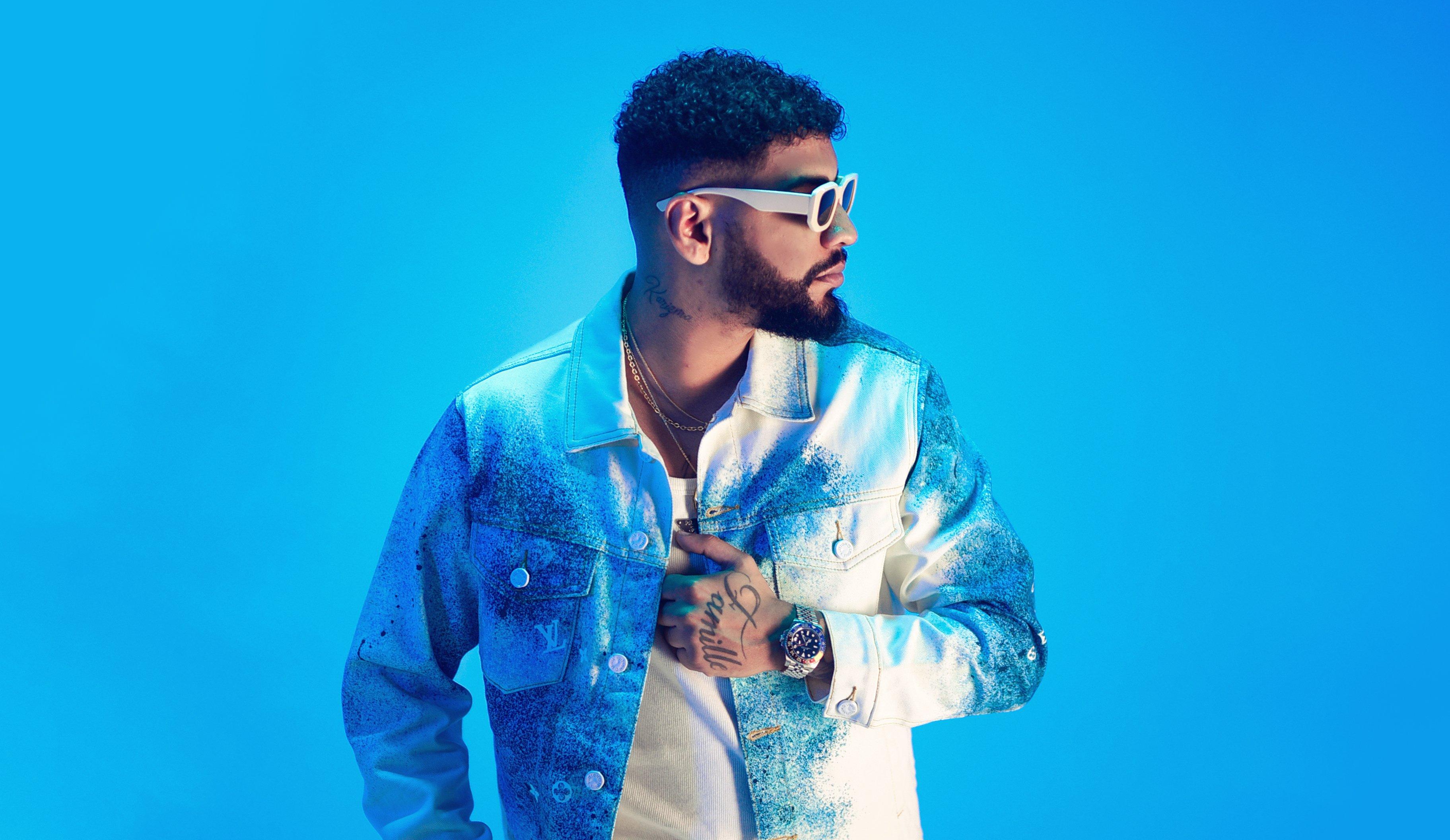
Courtesy of Red Diamond Records/Skander Abes
list
5 Independent Record Labels Bringing The Sounds Of The Middle East & North Africa To The World
Over the past 5 years, a slew of local record labels have emerged to promote and cultivate talent in countries like Lebanon, Palestine, the UAE and elsewhere. Read on for several indies with unique and exciting rosters.
The new generation of artists in the Arabic music scene continues to burst onto the global scene at a rapid pace. Whether artists are creating music in the Middle East and North Africa (MENA) or are part of the Arab diaspora, Arabic songs and albums are having a moment. Sounds from the region and its diaspora are expanding beyond listeners who speak the language, and finding its way to anyone who appreciates good music.
The rise of Arabic music’s global popularity is part of a decades-long effort by the creative community to showcase the breadth of musical talent coming out of MENA. Arabic singers of the '50s, '60s, and '70s — including Lebanese legend Fairuz and Egyptian icon Umm Kulthum — garnered appreciation from audiences far beyond the Arab world. Led Zeppelin frontman Robert Plant candidly shared in an interview that Umm Kulthum had "blown a hole in the wall of my understanding of vocals."
Arabic pop stars of the '80s, '90s, and early 2000s became worldwide sensations for their infectious melodies and fusing Arabic rhythms with other cultural sounds. Egyptian pop star Amr Diab seamlessly blended Arab instruments with Spanish flamenco, propelling him to international superstardom for over four decades.
Some Arab artists even collaborated with their Western counterparts to create hit music. Among those collaborations include Sting and Algeria’s Cheb Mami for their 1999 smash "Desert Rose" (which was performed at the 42nd GRAMMY Awards) and Don Omar’s song with Egyptian singer Hakim "Tigi Tigi" in 2007, mixing together reggaeton production with Arab rhythms and instruments.
Read more: 5 Arab American Artists To Know In 2024: Lana Lubany, Felukah & More
While Arab pop had dominated mainstream Arabic music scene, hip-hop was becoming more prominent in the region by the mid and late 2000s.OGs like Syrian rapper Omar Offendum, Iraqi emcee Narcy, Palestinian rap group DAM, Moroccan juggernaut Don Bigg, Lebanese rap pioneer Kalash, and Palestinian lyricist Shadia Mansour laid the foundation for the success of the genre in the region.
Now in recent years, Arab artists like Elyanna and Saint Levant are performing at major music festivals in the United States like Coachella and Gov Ball. Other artists like Morocco’s DYSTINCT and ElGrandeToto and Egypt’s Wegz have sold out tours in Europe and North America. Bands like Mashrou’ Leila and Cairokee defined a generation of indie Arab artists in their heyday in the 2010s.
As the infrastructure for the new wave of Arab artists started to take more shape over the last five years, so too have the growth of local record labels in the Middle East and North Africa, helping to promote and cultivate homegrown talent. And while their presence remains fairly new, their impact has been felt on local scenes in Egypt, Jordan, and in the region almost immediately.
Many Lebanese rappers, for example, have found a home with local label Beirut Records.
"The scene in Lebanon hasn’t grown as much as it should have — despite helping to pioneer rap in the region — because there weren’t a lot of chances or opportunities for Lebanese artists," emphasizes Hiba Abou Haidar, founder and CEO of Beirut Records. "What Beirut Records is doing is giving artists these opportunities to pursue a career in music."
SVNBIRDS, which primarily supports Sudanese creatives locally and across diaspora communities, has similarly proven to be a hub for emerging Sudanese talent. "There’s not a solid industry infrastructure at all in Sudan, especially with the outbreak of the war and the diaspora scattered around the world. We act as an incubator, able to spread Sudanese music to the diaspora and beyond," says Menna Shanab, public relations manager for SVNBIRDS.
From Tunisia to the UAE and everywhere in between, here are five independent record labels in the Middle East and North Africa highlighting the musical talent of the region.
Beirut Records
Location: Beirut, Lebanon
Artists to know: Bu Nasser Touffar, Sandy Henoud, Kalash
Beirut Records started in 2017 in its capital namesake as a community for underground Lebanese rappers, producers, and singers to come together and create music. The label is "on a ruthless mission to put Arabic music on the map," working first with hip-hop artists before expanding to R&B. Today, they've grown their reach beyond Lebanon’s borders.
Whether listeners are looking for the lyrical versatility of Nuj or Ziggy, or the commanding and sultry voice of Sandy Henoud, Beirut Records continues to set a standard of excellence for homegrown Lebanese talent.
BLTNM
Location: Ramallah, Palestine
Artists to know: Shabjdeed, Al Nather, Daboor
BLTNM is unapologetically Palestinian — not only in their artists, but through the themes each artist explores in their music. Formed in 2019, BLTNM prides itself on the lived experiences of its artists, striving to showcase true Palestinian identity in a way that subverts outside assumptions of what that identity means.
That subversion also shines through in their music, finding innovative ways to push Palestinian hip-hop to new levels of creativity.The hyperactive rap style of Shabjdeed intricately fills every aspect of Al Nather’s production, which is inspired by Atlanta trap music. Rapper Daboor’s confrontational and in-your-face style harkens back to the essence of hip-hop as a genre of protest.
Red Diamond Records
Location: Bizerta, Tunisia
Artists to know: Samara, Amal Fathi, Tchiggy
Established by Driss Dhaouadi and Mouhammed Wadhah Kefi in 2019, Red Diamond has quickly become a driving force for showcasing Tunisian rappers. As the country's first rap label, Red Diamond continues to cultivate hip-hop artists across the country and put Tunisia on the musical map.
Red Diamond boasts a roster of incredible talent that must be heard and respected. Versatile emcees such as Samara, Tchiggy, and Joujma, and pop singers such as Amal Fathi create earworms that feature elements of R&B and Afropop and nostalgic boom bap hip-hop. Throughout, these artists showcase their lyrical prowess, which is rooted in their native Tunisian dialect and colloquialisms.
SVNBIRDS
Location: Dubai, United Arab Emirates
Artists to know: Soulja, Montiyago, Big Moe
SVNBIRDS has quickly ascended since 2020 to become a cornerstone for cultivating and amplifying talent from Sudan. Founded by a collective of artists and music enthusiasts, SVNBIRDS continues to export Sudanese rhythms fused with hip-hop and Afropop to the rest of the region and the world.
Listeners can expect to hear the smooth lyricism of Soulja and the melodic raps of Montiyago, among other incredible Sudanese talent. Production at the label — led by producers 77, Khayyat, and others — incorporate aspects of groovy syncopation of traditional Sudanese rhythms with trap and R&B, creating distinctly signature sounds that define the label and its artists.
SSC Music
Location: Tangier, Morocco
Artists to know: NovaQueen, kouz1, Mocci
What grew from a recording studio to a full blown indie label in just one year, SSC Music has become a powerhouse in Moroccan music. Founded in 2020, the label has become a mainstay with the new generation of Arab artists and Arabic music, exporting Morocco’s pop and hip-hop artists across the Middle East and North Africa.
Listeners can come listen to the Afropop influences of kouz1, whose dreamy sultry hit "Love" boasts over 63 million views on YouTube and over 43 million streams on Spotify, or the R&B talents of NovaQueen, among many other talents at SSC Music.
Latest News & Exclusive Videos

How Major Lazer's 'Guns Don't Kill People…Lazers Do' Brought Dancehall To The Global Dance Floor

YOASOBI Performs "Idol" | Global Spin

'Wicked' Composer Stephen Schwartz Details His Journey Down The Yellow Brick Road

GRAMMY Museum Expands GRAMMY Camp To New York & Miami For Summer 2025

Living Legends: Brooks & Dunn On How 'Reboot II' Is A Continuation Of "Winging It From Day One"
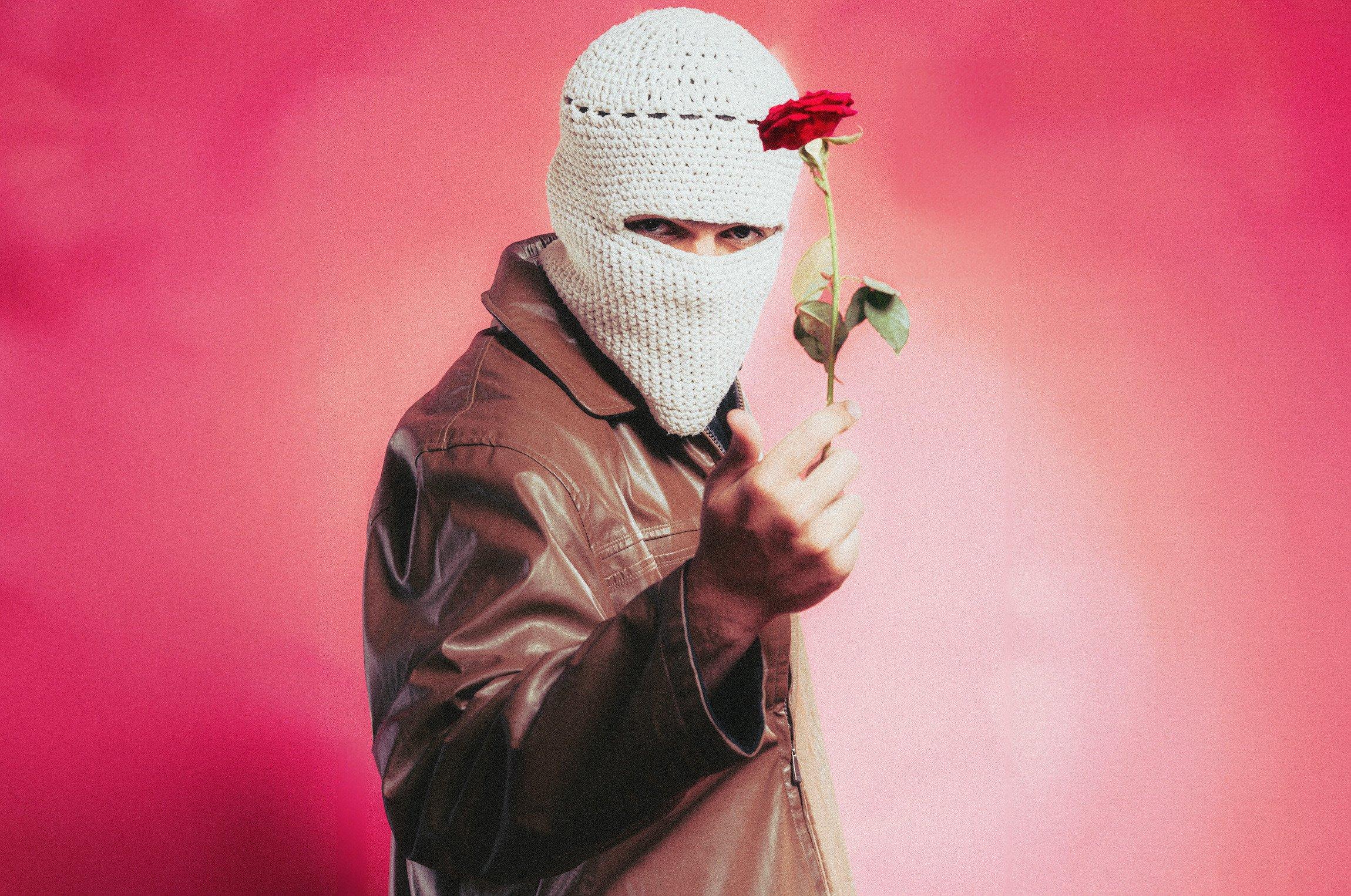
Photo: Mostafa Adry
interview
Get To Know TUL8TE, The Rising Arab Pop Star Bringing Egyptian Culture To The World
Since his debut with 2023's 'MAGHOOL,' TUL8TE has quickly become the newest face of Gen Z Arab Pop. In his first-ever interview, learn more about his influences and writing process, as well as why he's "honored" to be representing his country.
"HABEEBY LEH" may be TUL8TE's global breakthrough single, but it's also a very important part of who he is. Both the song and its music video pay tribute to the viral masked artist's home country of Egypt, from several sonic nods to Egyptian pop icon Amr Diab to a visual filmed on the streets of Cairo. But the popularity of "HABEEBY LEH" has rapidly expanded beyond Egypt's borders.
In the two months since the music video launched on YouTube, "HABEEBY LEH" has racked up over 12 million views as of press time. The song — a track on TUL8TE's second album, Cocktail Ghena'y — also has over 10 million streams on Spotify, over 8 million streams on regional platform Anghami, and has been used in over 61,000 videos on TikTok.
For an independent artist in the Middle East and North Africa performing in Arabic, those are eye-popping numbers. What's even more remarkable is that all of this happened organically, without a single dollar spent on marketing or promotion for the Cocktail Ghena'y's release — a global success for regional talent rarely seen without support from a major label.
While Arab artists in diaspora communities, such as Palestinian-Chilean singer Elyanna and Moroccan pop star DYSTINCT, have helped bring Arabic music to the global forefront in recent years, TUL8TE is doing so in a way his peers aren't. Based in Egypt, his homegrown approach brings the language and the music straight from the Middle East and North Africa directly, organically tapping into the cultural zeitgeist and building a grassroots foundation on his own.
Of course, a major part of his appeal is also thanks to his anonymity. TUL8TE has become known for his wearing a white knit mask, only adding to the intrigue around the Egyptian sensation. But in TUL8TE's eyes, his physical identity isn't important to his artistry.
"It doesn't matter who the performer is, what matters is how the listener interprets the music and lyricism. It has resonated with people of all cultures, and that is what matters," TUL8TE emphasizes to GRAMMY.com. "Music is for the people."
Since debuting in May 2023 with his first EP, MAGHOOL, the singer's global appeal has increased with each release. While his first album, TESH SHABAB, saw success in the Middle East, it was Cocktail Ghena'y that cemented him as the new face of Gen Z Arab pop.
The project emphasized his musical versatility even more than its predecessors; the first half of Cocktail Ghena'y features elements of flamenco and Arab rhythms, while the second half weaves trap- and R&B-inspired beats with melancholic melodies to help his silky voice shine. As the LP shows, TUL8TE's modern take on Arabic music makes his sound as relatable to people in his community as it is to listeners around the world — which is exactly why he's on the path to global superstardom.
In his first official interview, TUL8TE spoke with GRAMMY.com about the global success of Cocktail Ghena'y, his artistic vision, and why he'll always stay true to his roots.
Your album Cocktail Ghena'y has achieved massive global success. How does it feel to see your music reach listeners beyond Egypt and even beyond the Middle East and North Africa?
It's incredibly rewarding to see the music I created in my bedroom resonate with people around the world. Knowing that listeners from different cultures and backgrounds connect with my work is both humbling and creatively energizing. It pushes me to keep evolving and making music with even more passion.
Within the emerging Arabic scene, we've seen diaspora Arab artists gain global success. What does it mean to see you, as a homegrown artist from the region, achieve such a growing fanbase at a rapid pace—all organically? Did you ever imagine this kind of global attention?
Honestly, I never imagined my music would receive this level of global attention. I was simply focused on enjoying the creative process, staying true to myself, and hopefully inspiring others, especially younger generations. To see this response has been an incredible blessing, not just for me but for those who have supported me along the way.
Throughout your album, you vulnerably explore the rollercoaster of emotions when going through love and loss. What is your writing process like, and how did you decide to candidly open up in this way on the album?
My writing process is deeply personal, and I strive for authenticity in every track. Love and loss are universal experiences, and I wanted to express those emotional highs and lows in a raw and honest way. I believe that vulnerability allows for a deeper connection with listeners, and that was my goal—to create something people can genuinely relate to.
Your album is divided into two distinct sounds: one that is reminiscent of '90s Amr Diab with a cultural blend of Arab instruments and Spanish flamenco, and the other more experimental with elements of trap and R&B akin to Travis Scott. Can you share a little bit about why the album is broken up this way and how you decided to take this approach?
I've always been drawn to blending genres that reflect my own diverse musical influences. The album naturally evolved into a mix of sounds—on one hand, there's the nostalgic nod to artists like Amr Diab who shaped my upbringing, and on the other, there's a more experimental side that reflects my passion for modern genres like flamenco, bossa nova, and psychedelic rock, et cetera. It wasn't a calculated decision, but rather an organic reflection of what I enjoy and consider good music.
Speaking of Amr Diab, it's clear that you have an affinity with his music, and we've seen you pay homage to him in your music videos. Can you tell me a bit about the impact he has had on you and your music?
Amr Diab is a legendary artist and a profound inspiration for me. He embodies the power of self-belief and shows how it can lead to extraordinary achievements. His innovative spirit and willingness to experiment with different genres have paved the way for younger generations, including myself.
With this massive global audience, do you feel a responsibility to represent the new wave of Egyptian and Arab artists to the world and to be the face of this scene?
I'm honored to be part of a movement that's showcasing the richness of our culture to a global audience. But I try not to get too caught up in the idea of being a "representative." My focus is on staying authentic to my own creative journey and letting the music speak for itself. That's where I find the most joy and fulfillment.
Who are some of the people that you credit for getting you into music and getting your career going?
I owe a lot to the support of friends and family, but I have to specifically mention Lege-Cy and Hady Moamer. Their guidance in the early stages of my career opened my eyes to different ways of creating music, and that foundation has been instrumental in shaping who I am as an artist today.
Are you planning to go on tour and perform your music in front of a live audience?
Absolutely! Performing live has always been a dream of mine, and I'm fully committed to making that happen. There's something magical about sharing that energy with a live audience.
Do you feel like you've made it? What's next for you?
The concept of "making it" is fluid. There's always more to learn, more to create, and more to accomplish, so I wouldn't say I've made it just yet. My focus is on continuing to grow, staying true to what I love, and seeing where that takes me next.
Latest News & Exclusive Videos

How Major Lazer's 'Guns Don't Kill People…Lazers Do' Brought Dancehall To The Global Dance Floor

YOASOBI Performs "Idol" | Global Spin

'Wicked' Composer Stephen Schwartz Details His Journey Down The Yellow Brick Road

GRAMMY Museum Expands GRAMMY Camp To New York & Miami For Summer 2025

Living Legends: Brooks & Dunn On How 'Reboot II' Is A Continuation Of "Winging It From Day One"
